第27章 LATER DAYS, AND DEATH(1)
FOR twenty years Kinglake lived in Hyde Park Place, in bright cheerful rooms looking in one direction across the Park, but on another side into a churchyard. The churchyard, Lady Gregory tells us, gave him pause on first seeing the rooms. "I should not like to live here, I should be afraid of ghosts." "Oh no, sir, there is always a policeman round the corner." "Pleaceman X." has not, perhaps, before been revered as the Shade-compelling son of Maia:
"Tu pias laetis animas reponis Sedibus, VIRGAQUE LEVEM COERCES AUREA TURBAM."Here he worked through the morning; the afternoon took him to the "Travellers," where his friends, Sir Henry Bunbury and Mr. Chenery, usually expected him; then at eight o'clock, if not, as Shylock says, bid forth, he went to dine at the Athenaeum. His dinner seat was in the left-hand corner of the coffee-room, where, in the thirties, Theodore Hook had been wont to sit, gathering near him so many listeners to his talk, that at Hook's death in 1841 the receipts for the club dinners fell off to a large amount. Here, in the "Corner," as they called it, round Kinglake would be Hayward, Drummond Wolff, Massey, Oliphant, Edward Twisleton, Strzelecki, Storks, Venables, Wyke, Bunbury, Gregory, American Ticknor, and a few more; Sir W. Stirling Maxwell, when in Scotland, sending hampers of pheasants to the company. "Hurried to the Athenaeum for dinner," says Ticknor in 1857, "and there found Kinglake and Sir Henry Rawlinson, to whom were soon added Hayward and Stirling. We pushed our tables together and had a jolly dinner. . . . To the Athenaeum; and having dined pleasantly with Merivale, Kinglake, and Stirling, I hurried off to the House." In later years, when his voice grew low and his hearing difficult, he preferred that the diners should resolve themselves into little groups, assigning tohimself a TETE-A-TETE, with whom at his ease he could unfold himself.
No man ever fought more gallantly the encroachments of old age - ON SUT ETRE JEUNE JUSQUE DANS SES VIEUX JOURS.At seventy-four years old, staying with a friend at Brighton, he insisted on riding over to Rottingdean, where Sir Frederick Pollock was staying. "I mastered," he said, in answer to remonstrances, "I mastered the peculiarities of the Brighton screw before you were born, and have never forgotten them." Vaulting into his saddle he rode off, returning with a schoolboy's delight at the brisk trot he had found practicable when once clear of the King's Road. Long after his hearing had failed, his sight become grievously weakened, and his limbs not always trustworthy, he would never allow a cab to be summoned for him after dinner, always walking to his lodgings. But he had to give up by and by his daily canter in Rotten Row, and more reluctantly still his continental travel. Foreign railways were closed to him by the SALLE D'ATTENTE; he could not stand incarceration in the waiting-rooms.
The last time he crossed the Channel was at the close of the Franco- Prussian war, on a visit to his old friend M. Thiers, then President. It was a dinner to deputies of the Extreme Left, and Kinglake was the only Englishman; "so," he said, "among the servants there was a sort of reasoning process as to my identity, ending in the conclusion, 'IL DOIT ETRE SIR DILKE.'" Soon the inference was treated as a fact; and in due sequence came newspaper paragraphs declaring that the British Ambassador had gravely remonstrated with the President for inviting Sir Charles Dilke to his table. Then followed articles defending the course taken by the President, and so for some time the ball was kept up. The remonstrance of the Ambassador was a myth, Lord Lyons was a friend of Sir Charles; but the latter was suspect at the time both in England and France; in England for his speeches and motion on the Civil List; in France, because, with Frederic Harrison, he had helped to get some of the French Communists away from France; and the French Government was watching him with spies. In Sir Charles's motion Kinglake took much interest, refusing to join in the cry against it as disloyal. SirCharles, he said, spoke no word against the Queen; and only brought the matter before the House because challenged to repeat in Parliament the statements he had made in the country. As a matter of policy he thought it mistaken: "Move in such a matter openly, and party discipline compels your defeat; bring pressure to bear on a Cabinet, some of its members are on your side, and you may gain your point." Sir Charles's speech was calmly argumentative, and to many minds convincing; it provoked a passionate reply from Gladstone; and when Mr. Auberon Herbert following declared himself a Republican, a tumult arose such as in those pre-Milesian days had rarely been witnessed in the House. But the wisdom of Kinglake's counsel is sustained by the fact that many years afterwards, as a result of more private discussion, Mr. Gladstone pronounced his conversion to the two bases of the motion, publicity, and the giving of the State allowance to the head of the family rather than, person by person, to the children and grandchildren of the Sovereign. Action pointing in this direction was taken in 1889 and 1901 on the advice of Tory ministers.